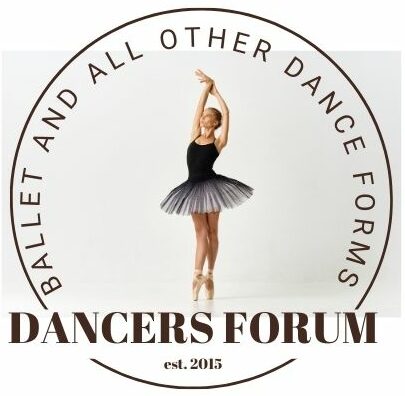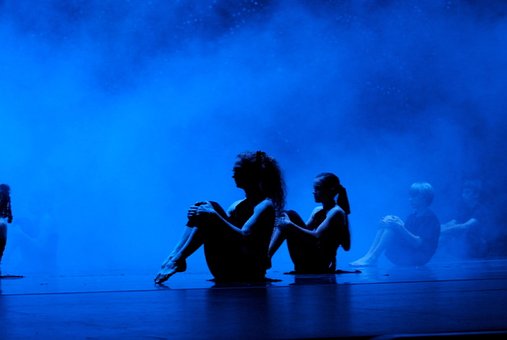If you want to wish your fellow dancers good luck before they go on stage, it doesn’t sound quite right to say ‘break a leg’ like you would to an actor. Also, as the old wives’ tale goes, it is actually considered bad luck to say to another dancer “good luck” before they go onto the stage.
Here are some great ways to wish a dancer good luck.
This post may contain affiliate links, which means the owner of this website may get a small commission for any qualifying sales made, but this in no way affects the price that consumers pay.
How To Wish A Dancer Good Luck Before A Performance
Chookas
“Chookas” is an expression used in Australia based on the word “chook”, meaning chicken, so I am not quite sure where this came from.
This might just explain it. The word “Chookas” dates back to the 1900s, when eating chicken was considered an expensive delicacy. If the performance was successful, dancers would be paid well and able to afford a chicken meal after the show.
Merde
“Merde” is French for um…”poop”
This is the most common word that dancers use to wish each other luck before a performance.
Saying “merde” became popular in 19th-century Paris, France back when patrons of the Paris Opera Ballet would arrive at the Palais Garnier in horse-drawn carriages. If there was a full house there would be a lot of horse manure in front of the theater.
So saying “merde” was to tell the dancers to have a good show for a full and approving audience.
This practice eventually spread worldwide.
Toi toi toi
“Toi, toi, toi” is onomatopoeia for the sound of spitting.
“Toi, toi, toi” comes from Yiddish, Hebrew, and Old German traditions where saliva was believed to have the power to banish demons.
Saying “toi toi toi” accompanied by a pantomimed spit was said to ward off evil spirits.
Break A Leg
When you tell someone to break a leg, you don’t literally mean that you want them to break a leg, especially if they’re a dancer.
People commonly tell performers to break a leg when they want them to do well or have success in their show, but this doesn’t sound quite right if you are a dancer.
Break a leg can be used by family or by friends. Cast members often say that to each other and it helps to boost the spirit of the entire team.
Break a leg is not usually restricted to a particular time and is usually said the last time that you meet with or speak to a person before their show. It can be used right before a show or even a few days before a show when you’re speaking about the upcoming event.
Blow Them Away
Blow them away is an easy catchphrase to use with people of any age.
While merde -because of its meaning – can’t be used with young children and “break a leg” might occasionally be misinterpreted, “blow them away” doesn’t carry any restrictions that would make it difficult to use in different contexts.
When you tell someone to “blow them away,” you’re wishing that they will impress their audience immensely. You want the audience to be amazed by what they see and hear.
In other words, the entire experience should be similar to that of an exciting whirlwind.
Safe Phrases
These are perfectly acceptable ways to wish a dancer luck before an important performance.
Safe phrases include, “best of luck” and “good luck.”
Since many performers come from diverse backgrounds and cultures, it’s sometimes helpful to use phrases that don’t mention luck or any other type of traditional theater superstition.
In this case, you might want to keep your wishes for their success to their acting skills or to more general terms that could be used in other situations as well.
You could say:
- “All the best.”
- “Do your best.”
- “Give it everything you’ve got.”
- “You got this!”
- “Leave it all on the stage.”
- “Wow the audience tonight.”
Your aim is always to help the dancer to focus on giving their best performance to their audience.
Encouragement is usually appreciated by anyone who has to face a crowd of people they’ve never seen before. Sometimes a simple thumbs-up can do this effectively.
Pairing words with positive gestures makes a double impact.
Which one is your number one go-to on how to wish a dancer good luck?
No matter which phrase is your favorite, it is always best to think it over and make sure it is an appropriate comment for the person you are aiming it at.
How To Wish A Dancer Good Luck With A Gift
Here is a lovely assortment of appropriate gifts you can give that special dancer before her big performance.















Thanks for this interesting post!
This is a great post to read, phrases like break a leg as well as blow them away are quite commonly said even outside the dance world however I have learnt some new ones which I guess will try using!
Lol, merde is a pretty strange way of wishing luck once you know the meaning but the backstory fixes it.
Have a great day!
Hello! I just finished reading your post on How To Wish A Dancer Good Luck. I really enjoyed reading this article! As a child, my mother actually enforced me to take up dance (mainly tap dance, and some small classes on ballet) I never much cared for it as an interest unfortunately, although my sister enjoyed it very much.
That being said, it doesn’t mean your article wasn’t interesting to me! I enjoyed how you thought of many terms to wish a dancer good luck before their performance. I honestly had no idea there were so many ways to do so! I had heard of the “break a leg” term with Improv and Acting, as I did some of that in my teenage years. But, I never thought of this phrase as not being suitable for dancers, despite its context, not exactly something you want a dancer to literally go through with onstage.
I also didn’t know merde was considered anything other than how you might say s**t in French. I didn’t know it literally meant “poop” and its origins were that of opera houses. I guess I’ve just never been in the dance scene to know enough about how dancers greet one another or wish each other a great performance.
All I remember about dance from when I was a young kid is, the shoes were often terribly uncomfortable, and having to memorize all those tap steps and dancing not being my strength nor of any interest to me at that age I never excelled or enjoyed it. A lot of my “dislike” for the practices was rooted in the fact my mother like most mothers would tell us she was dropping us off at the studio. And she’d go and have a coffee or something and return later once practices were finished to collect us.
In my mind, at the young age of 4 or 5 years old, this translated as “I’m leaving and who knows when I’ll return” and as a result, it sort of set off a “fight or flight” response in my mind that whenever she left us at dance practice one of these days would be the time she leaves and doesn’t return to pick us up for some reason. I’m not sure why this was my thought process but, not enjoying dance, to begin with.
And being enforced to take the lessons, I guess is maybe why my thoughts went to the negative side of things. A Tip: If you’re a parent of a young child maybe stay at their dance practices instead of leaving. Being left in a strange place without my mother for these dance practices at the age of 4 or 5 was not fun for me. It was scary as a kid! I felt like I had done something wrong to have to deserve this in some ways.
I think by the age of maybe 7, I told my parents I hated dancing, and I couldn’t possibly continue attending the lessons. I only ever did a small bit of dance performance of choreographed moves while acting in musicals as a teenager. Not a ton of skill is required to do this, nothing like training for dance competitions and performances. I did somewhat enjoy that compared to my younger tapping and ballet days as a child.
Your article was informative, and it really brought me back to thinking about those childhood days of being taken to dance class. Not a bad thing really, just trying to think what I actually remember (if anything!) from what they had taught me in those classes.
At 26 years old today, I don’t think I can recall anything I still would know how to do today if someone handed me a pair of tap shoes, but, nevertheless, your article was very enjoyable to read. And I had no idea you could wish a dancer good luck in so many ways that you mentioned.
Thank you for such a great article!
Sorry to hear that you had such a traumatic experience with dancing when you were younger. Maybe your Mom really needed the break.
Most of the mothers that bring young children to our studio hang around for the first few years until the child is secure. Most four-year-olds I know would not be comfortable if their parents were not in close proximity.
Also, some parents force their children to dance, when clearly they don’t enjoy it. I believe each child has different interests and talents and they are so lucky if they find out what those are when they are still young.
I had no idea that dancers have a special way of wishing one another good luck before a performance. So it was fascinating to see all these ways of wishing a dancer good luck. Would these expressions only be used between dancers? Or can a non-dancer also use them to wish the dancer good luck?
Do you know what the old wive’s tale is that considers “good luck” as a bad omen for dancers? I do like the phrase of “blow them away” or go and wow the audience. Thank you for sharing some great alternatives to the traditional “good luck”.
I know that good luck is not used often anymore in the theatre world, however, it is for people writing exams, and I am not sure why this is.
Yes, non-dancers can also use these phrases to wish dancers good luck.
Love that there are so many options. I wish I would’ve read this when my daughters danced many years ago. I always just said, “Have fun!” but these would’ve been fun to use. Here in Hawai’i we also give leis at the end of the dance recitals. Is this appropriate world-wide or something that should only be done here in Hawai’i? Is there a custom gift-giving time everywhere else or something only done backstage?
Thanks for all the information you shared and the fun story of “merde” in the dance world.
Thanks for stopping by Debby. I will definitely have to do some research on custom gift giving, but most of the time it is a flower or bunch of flowers.
Chip an Eyelash is standard for dancers as Break a leg is for actors. I have been fortunate enough to be a professional performer and have known this phrase for decades.